Enjoy “Jinja Ehru” ginger ale from a historic shrine in Tokyo
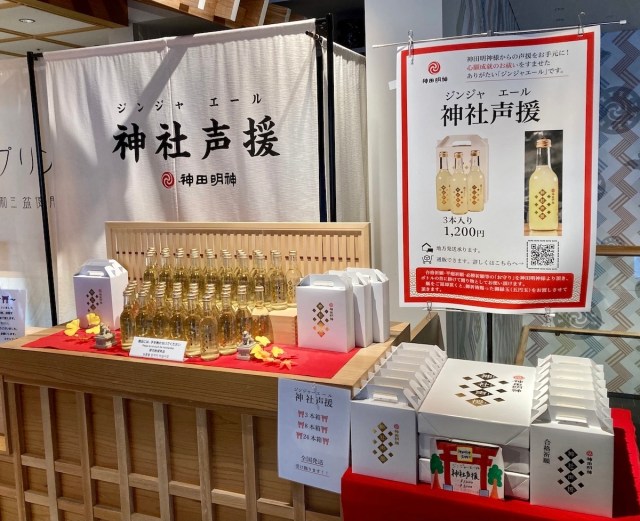
Drink up the shrine’s blessings in a most sacred pun.
Japan is full of various religious buildings, but the two most common are Shinto shrines known as “jinja” in Japanese, and Buddhist temples which are called “tera.” Both structures are often centuries old and have long-running sacred traditions.
For example, Kanda Myojin in Tokyo dates back almost 1,300 years and has long been regarded as one of the most spiritual spots in the metropolis. However, being located near Akihabara they aren’t afraid to get with the times, and the shrine making an appearance in Love Live! greatly boosted visitations by fans of the anime.
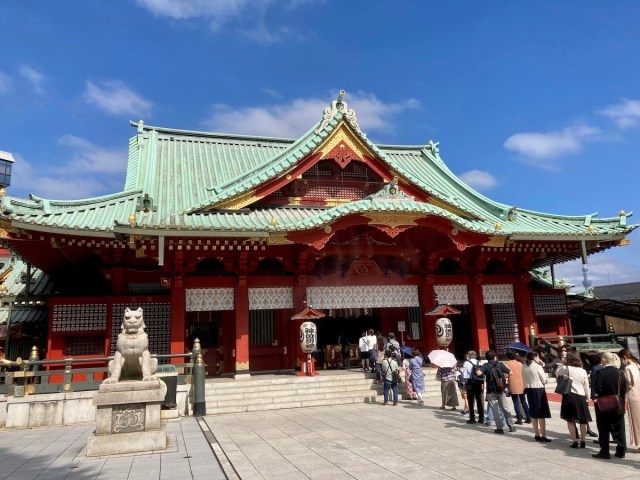
And then there’s the product our reporter Masanuki Sunakoma went to try. You might have noticed that the Japanese word “jinja” can sound quite a bit like the English word “ginger,” and so the most hallowed of dad jokes was crafted into a high-end ginger ale, sold on the shrine’s precincts.
▼ The four Japanese characters read: “Jinja Ehru”
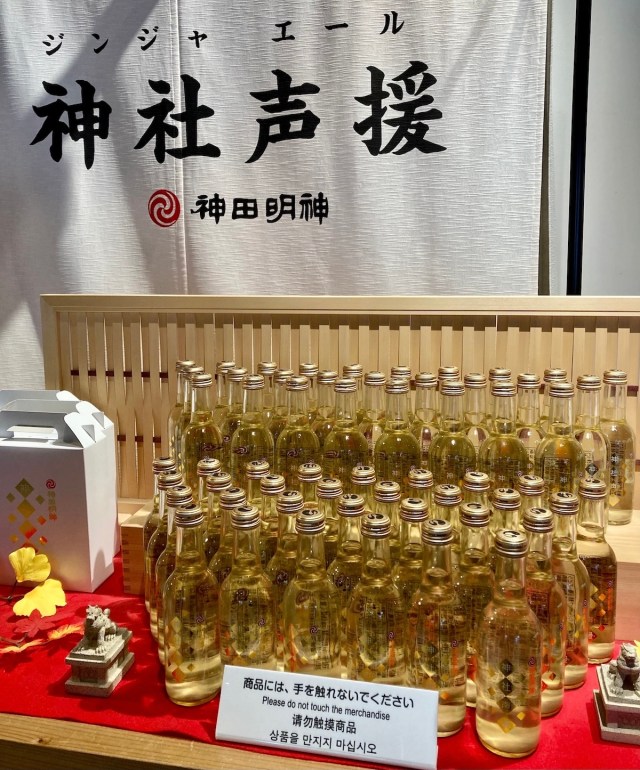
The kanji are usually read “Jinja Seien,” with the second word meaning “support” or “cheer on.” However, Kanda Myojin took some liberties and interpreted it as the English word “yell.”
Much to the dismay of the artist formerly known as Kanye West, Japanese doesn’t have a way to pronounce “ye,” so “yell” becomes “ehru,” which is also exactly how the “ale” in ginger ale is rendered in Japanese.
The idea came about in 2018 when the shrine opened a new cafe, but more than just a play on words, Jinja Ehru became a poplar drink for its use of fresh grated ginger for a more full-bodied taste.
▼ Jinja Ehru can be found in the Masu Masu cafe inside the Edo Culture Complex (EDOCCO).
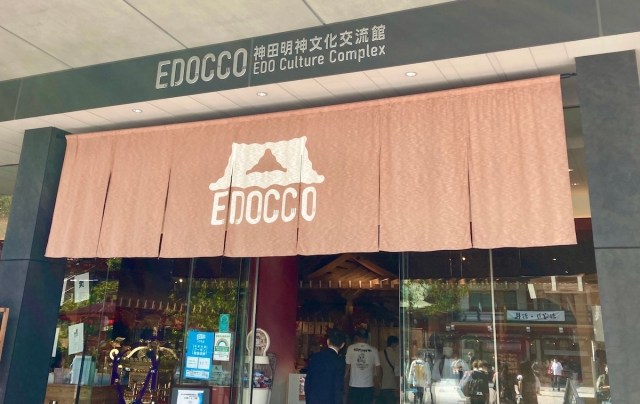
The cafe sells many related products such as Apple Jinja Ehru and Jinja Ehru Highball for 680 yen (US$6) each. There’s even Jinja Pork which is grilled pork seasoned with Jinja Ehru, and for take-out a three-pack of Jinja Ehru bottles for 1,200 yen ($10).
Masanuki selected a Passing Set for 750 yen ($6.60), which comes with a bottle of Jinja Ehru and some kaminari-okoshi snacks. These rice squares are named after “lightning” because they are said to provide a bolt of inspiration to people and their families. They’re also served in an auspicious pentagonal dish.
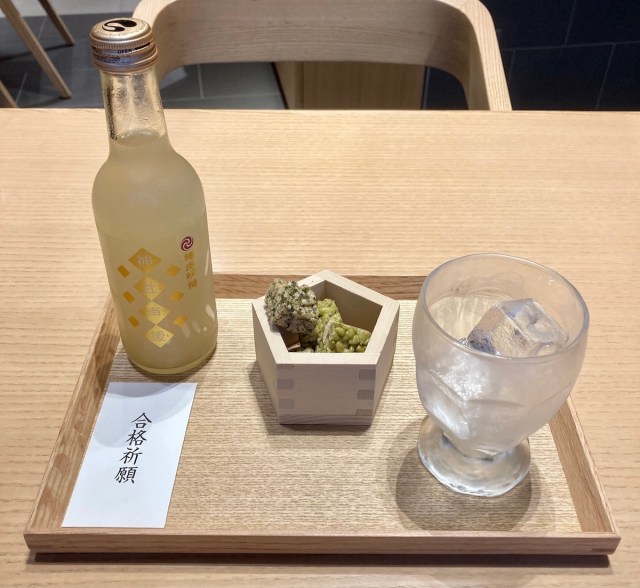
Masanuki wasn’t preparing to take any exams that he needed the shrine’s support to pass, but he felt that the Passing Set was just right for his level of hunger. The combo also came with a lucky five-yen coin.
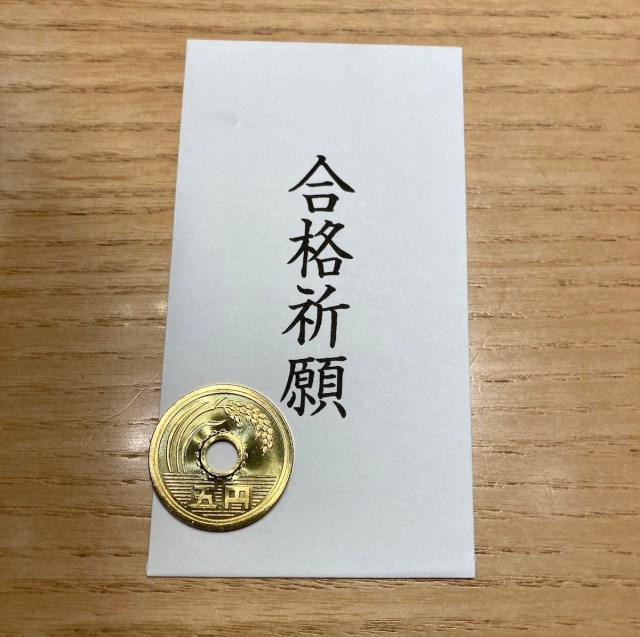
Because Jinja Ehru uses freshly grated ginger, the contents need to be mixed before drinking. It needs to be done gently though, because it’s carbonated and would explode into a holy mess if shaken too hard.
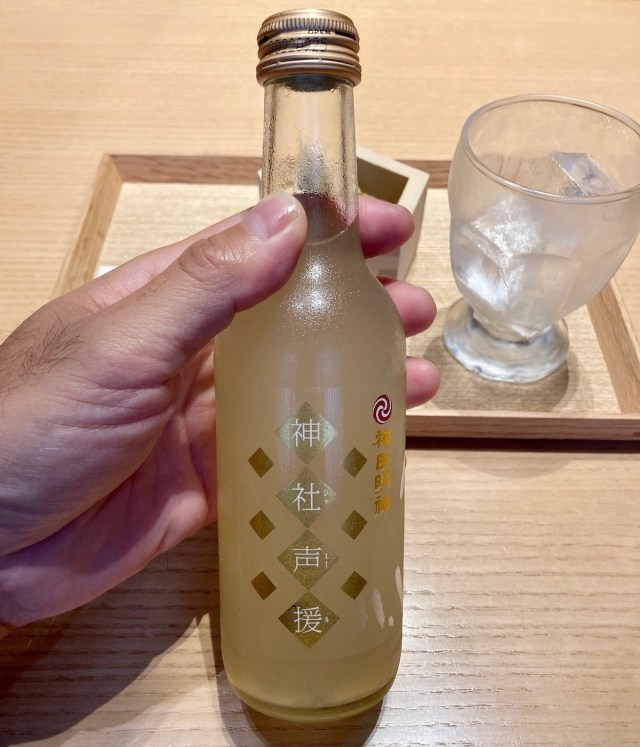
After opening the cap Masanuki was greeted with the fresh scent of ginger. Jinja Erhu had a flavor far more mature than its name, and the fresh ginger added a spicy kick that permeated Masanuki’s body, filling it with warmth.
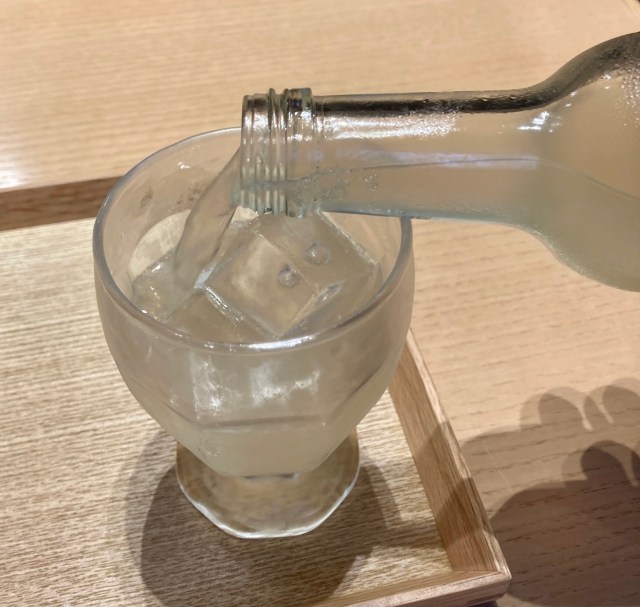
It was a unique take on ginger ale, and while tasty is probably only something you’d want to have on occasion. The snacks were very nice with a traditionally subtle flavor that let the Jinja Ehru be the star of the show.
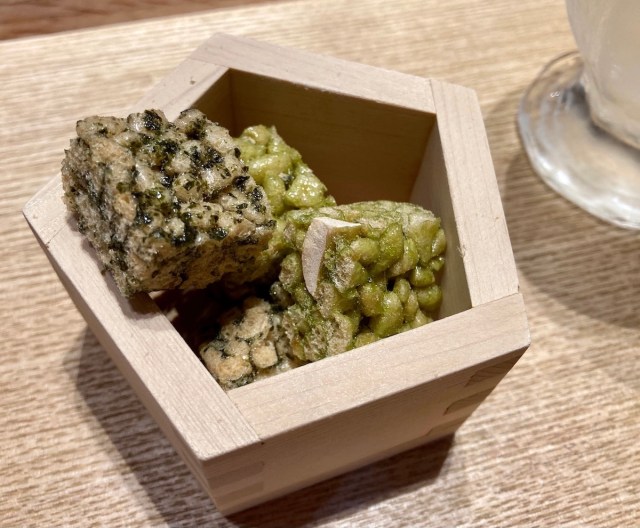
The flavor had a cleansing feeling and gave Masanuki a sense that the gods enshrined in Kanda Myojin were cheering him on as he left. On his way back to the office he eyed up everyone on the street, daring any one of them to give him a pop quiz.
Cafe Information
Kanda Myojin Edo Culture Complex (EDOCCO) / 神田明神 文化交流館「EDOCCO」
Address: Tokyo-to, Chiyoda-ku, Sotokanda 2-16-2
東京都千代田区外神田2丁目16-2
Hours: 10 a.m. – 5 p.m. (6 p.m. on Saturdays)
Photos: ©SoraNews24
● Want to hear about SoraNews24’s latest articles as soon as they’re published? Follow us on Facebook and Twitter!
Credit:




0 comments: